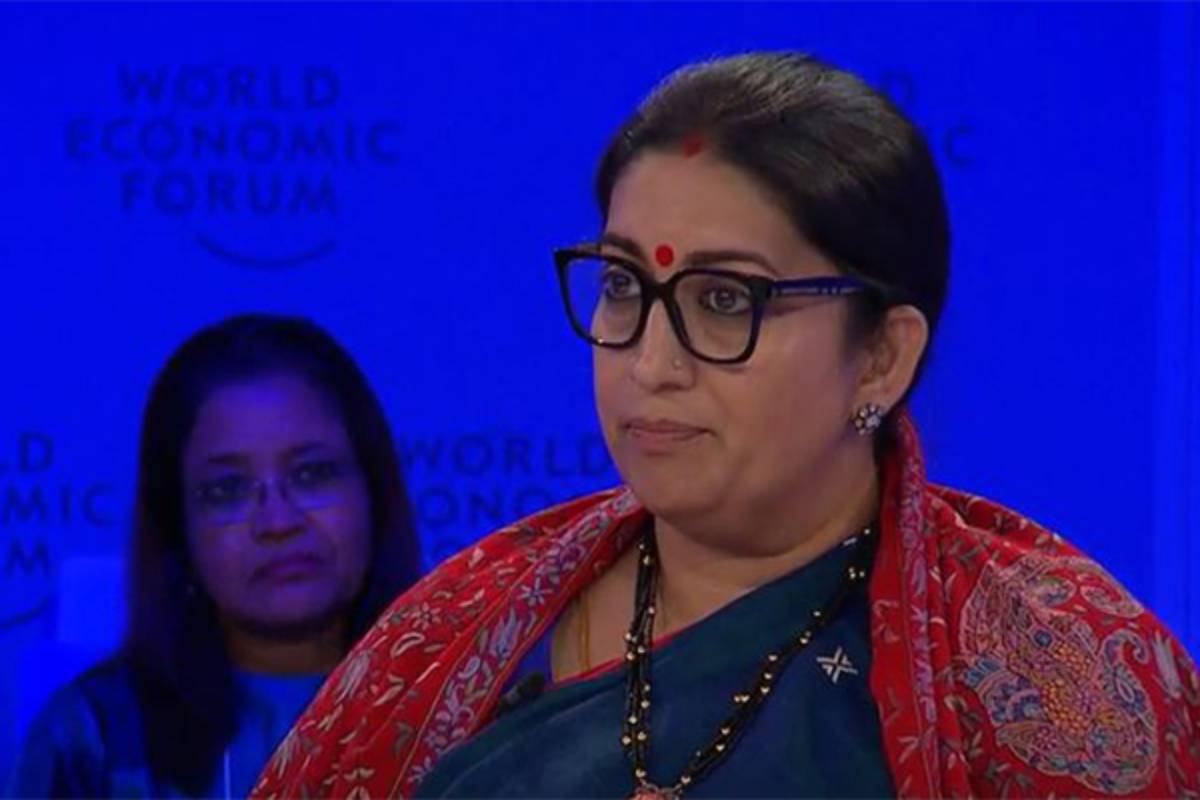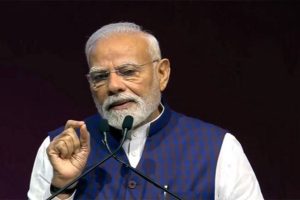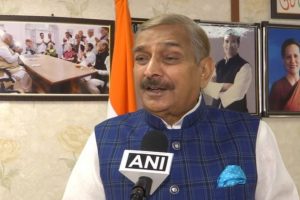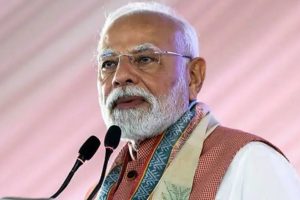Union Women and Child Development Minister Smriti Irani on Wednesday highlighted the importance of normalising conversations around women’s health.
She said that women’s healthcare systems or conversations were never mainstreamed and called it one of the greatest challenges.
Speaking at a session linked to the Women’s Health Programme at the World Economic Forum in Davos, Smriti Irani said, “I think women’s healthcare systems or conversations never were mainstreamed and that has been one of the greatest challenges. How do you provide the solution to an issue that has never been spoken of? Mostly, there is a presumption that women do not want the psychological burden of their medical challenge to fall upon their family unit or hinder the economic progression of their contribution. And that is why they tend to either self-medicate or not medicate at all.”
She also spoke about the initiatives taken for women’s development after Prime Minister Narendra Modi took office in 2014. She said that 110 million toilets have been built in India under the leadership of Prime Minister Narendra Modi.
Speaking about the initiatives taken for women’s development after 2014, Smriti Irani said, “From the Indian experience, let me provide you a big context. Post 2014, when Prime Minister Modi took office in the year 2010-11, there was a World Bank report which said that if there is a lack of sanitation facilities for women, there is a negative six per cent burden on the GDP of India. That being said, there is also the issue of security of women who were violated if they decided to defecate in the open now.”
“This information being available was politically and administratively acted upon by Prime Minister Modi who first said that if you want to ensure the health and dignity of women, let’s start building toilets now. So far from a cultural context, building toilets has never been politically glamorous. But Prime Minister Modi did that and we built under his leadership 110 million individual toilets which means it was an added impetus given to a woman’s menstrual health.”
She noted, “Under Prime Minister Modi, for the first time in the history of our country, we had an administrative protocol setup for menstrual hygiene management by governments at the centre, state, including administration at the district or the grassroot village, which means that the narrative about the women’s health was mainstreamed politically and administratively.”
PM Modi had launched Swachh Bharat Mission in 2014 to achieve an Open Defecation Free India by October 2, 2019, as a tribute to Mahatma Gandhi.
Smriti Irani said PM Modi gave cooking fuel which was clean and subsidised to 100 million poor women. Citing the WHO report, the minister said that Indian government was able to save 400,000 lives per year of women only by providing access to clean cooking fuel.
“Prime Minister Modi said let’s look at the issue of access to safe cooking fuel. A 100 million poor women given cooking fuel clean, subsidised directly by Prime Minister Modi. We saved because there has been a WHO report we said we saved 400,000 lives per year of women only by providing access to clean cooking fuel. Then, there was the water promise, 130 million individual portable water connections given to poor families, women, who spent half a day either collecting firewood or collecting water for their domestic consumption, lessening their burden,” Smriti Irani said.
During the discussion, Smriti Irani said that Ayushman Bharat today serves 440 million Indians acrss 27,000 hospitals for over 1900 diseases. She further said that hospital admissions only under this programme now stand at 62 million. She stated that PM Modi has dedicated his efforts towards preventive healthcare.
“Prime Minister also dedicated his efforts towards preventive healthcare. So they are close to over 120,000 health and wellness centres that are operational there. when you look at opportunties in women’s health, it does not only subscribe itself to access to healthcare institutions. It’s also an economic opportunity for women to come up and become part of the healthcare workforce,” Irani said.
“The pandemic showed that 6 million women turned up at the front line of delivering vaccine and pharmaceutical support to all Indian families, we did digitally. Also, today in the healthcare and wellness centres athat are operational in India, 130,000 health care workers, 66 per cent of them are women. But, there are segments of healthcare vis-a-vis gender which need direct focus on,” she added.
Smriti Irani also noted that there is much data that is not available to policymakers. She stated that there are many companies which have data from the entire globe and helath systems and added that these firms can share this information with the alliance which will help inform policy better.
Asked on how the reports and data can help strategise on preventive healthcare for women, the minister said, “What the alliance can help do, actually, is reflect on such reports. Over the past, let’s say a decade and a half, see what are the goals and the proposals that haven’t been met thus far. If they put and ascribe a geography to it, it will be helpful to thought leaders, pharmaceutical companies, those who are manufacturing medical devices and also possibly give the alliance the global expanse which is its ambition. Targeted benefits that will come to gender and health.
“I also believe there is much data which is not available with only policy makers. Let’s say Siemens and the medical instrumentation, which is available at their end, they have data from the entire globe and health systems there, which without I think you surping any proprietary rights at least that data also can speak to such an alliance, which will help inform policy better,” she added.
She called for having at least ten such agendas specifically focused on deliverables, not only in terms of research, because she stressed that “research is a poignant journey, takes time, takes efforts and takes dollars.”
Smriti Irani further said, “We have had framework where if you can pinpoint certain diseases or certain medical changes, which within the medical ecosystem available today governed by policy makers and private sector. If such medical challenges from the gender perspective can be as a red flag made available to every country, public and private partner, I think that this amalagam of some of the best minds can help.”





